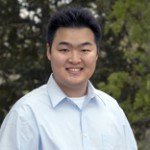Student Profile
Back

Brian Su
Class of 2006
LSU Law Student
Background: Electrical engineering degree from Tulane, lived in Baton Rouge as a child, graduated from high school in Iowa.
Why Law: I decided to go into law school and engineering mostly because of my parents. My dad is an electrical engineer; my mom went through law school. I was interested in both but I didn't realize I could combine the two until my second year in engineering school and I read about patent cases litigated all over the country.
Biggest Surprise: How accessible the professors are. Even if the problem isn't about the subject matter that particular professor is teaching, you can still talk about it. Law school is a big change for some people. If you have questions about another course, about how law school life is treating you, there is always an open door. You can talk to them about almost anything.
Other Students: They're friendly and supportive. You often hear about cutthroat law schools. I found LSU to be competitive but not cutthroat.
Students are great to work with, and they're fun to be around. In your first year, students usually start out in study groups. These groups help students to become acclimated to the law school environment. The group can be as big as you want it to be, but usually no more than five. Then you do your own thing - usually a combination of studying on your own until you get up to speed, then working with a group to clarify any uncertainties. The groups make sure everybody is up to speed and pulling their own weight.
Two Systems of Law: The joint degree is a great program because it allows you to survey a lot of other types of legal thinking, and that seems rare in American law schools. It expands your legal horizons, wherever you decide to practice. There are aspects of our civil law emphasis that I've found helpful when operating within the common law. Statutory interpretation, for example, is something that other common law-focused schools may give short shrift. Civil law emphasizes looking at codes and statutes, so while we're still comfortable with cases and jurisprudence, we're not as intimidated when someone asks us to investigate ramifications of say, a particular piece of legislation.
The International Flavor: Because of its civil law background, the school has many connections with many international universities and organizations. Some of the students in my class last semester studied in Venezuela and other parts of South America. Another friend has since graduated and gone off to get a master of laws in Amsterdam. If you're looking for an international component in your studies, LSU is a great place. Members of the faculty play significant roles on the international stage. Professor Emilio Cardenas, a former U.N. ambassador from Venezuela, taught class on international terrorism, which is obviously relevant to current events.
Summer Experience: I did intellectual property work, first for a firm in Washington D.C., for half the summer and then for a firm in Dallas. I focused on patent law, one of the fields of intellectual property that also includes copyright and trademarks, three vastly different types of protection for intellectual endeavors.
After Class: We have all sorts of parties - crawfish boils, St. Patrick's Day green beer, tailgates in front of the law school for LSU football games.
Assault and flattery is a lot of fun. It's Saturday Night Live with a law school theme, a send-up of professors and students. It's been hilarious the last few years.
Baton Rouge: After four years in New Orleans, I was ready for a change of scenery and pace. Baton Rouge is a great place to live and work. People here are terrific. There are lots of activities outdoors. I go biking quite a bit. I can be on the levee in 15 minutes and bike away for an hour, hour and a half. And New Orleans is still in striking distance.








